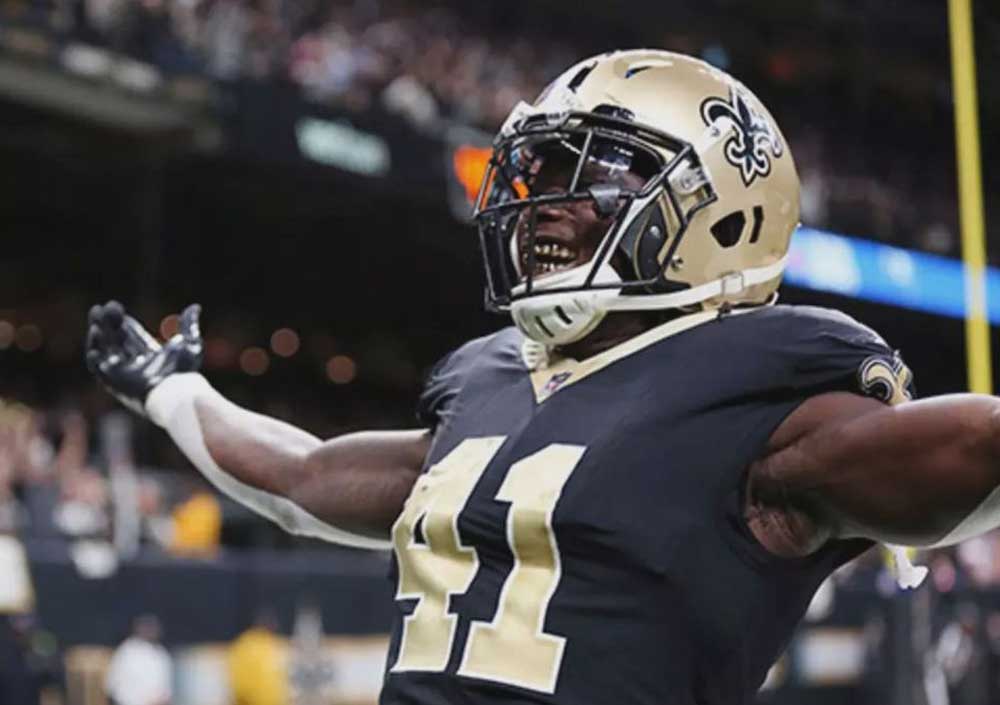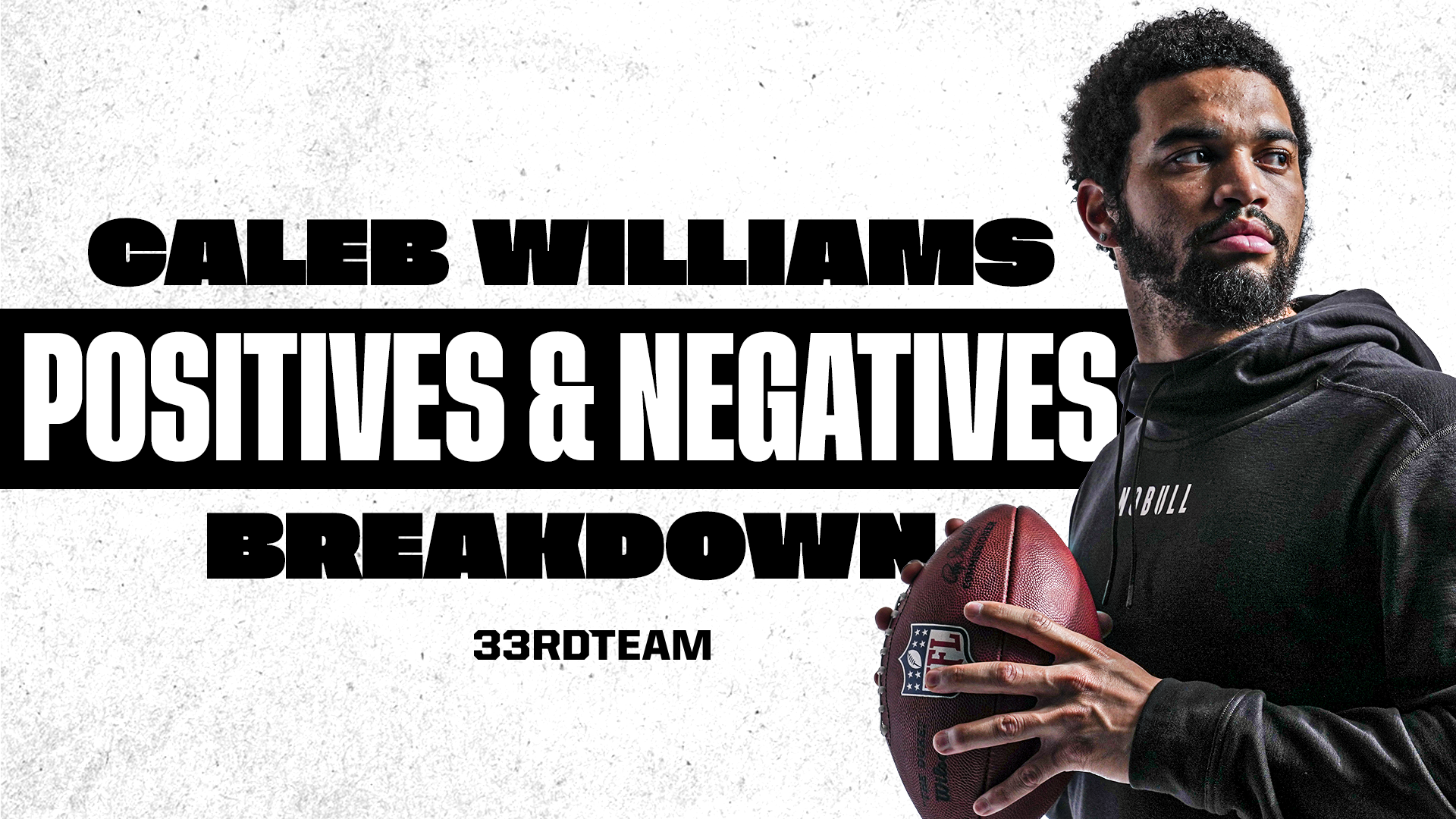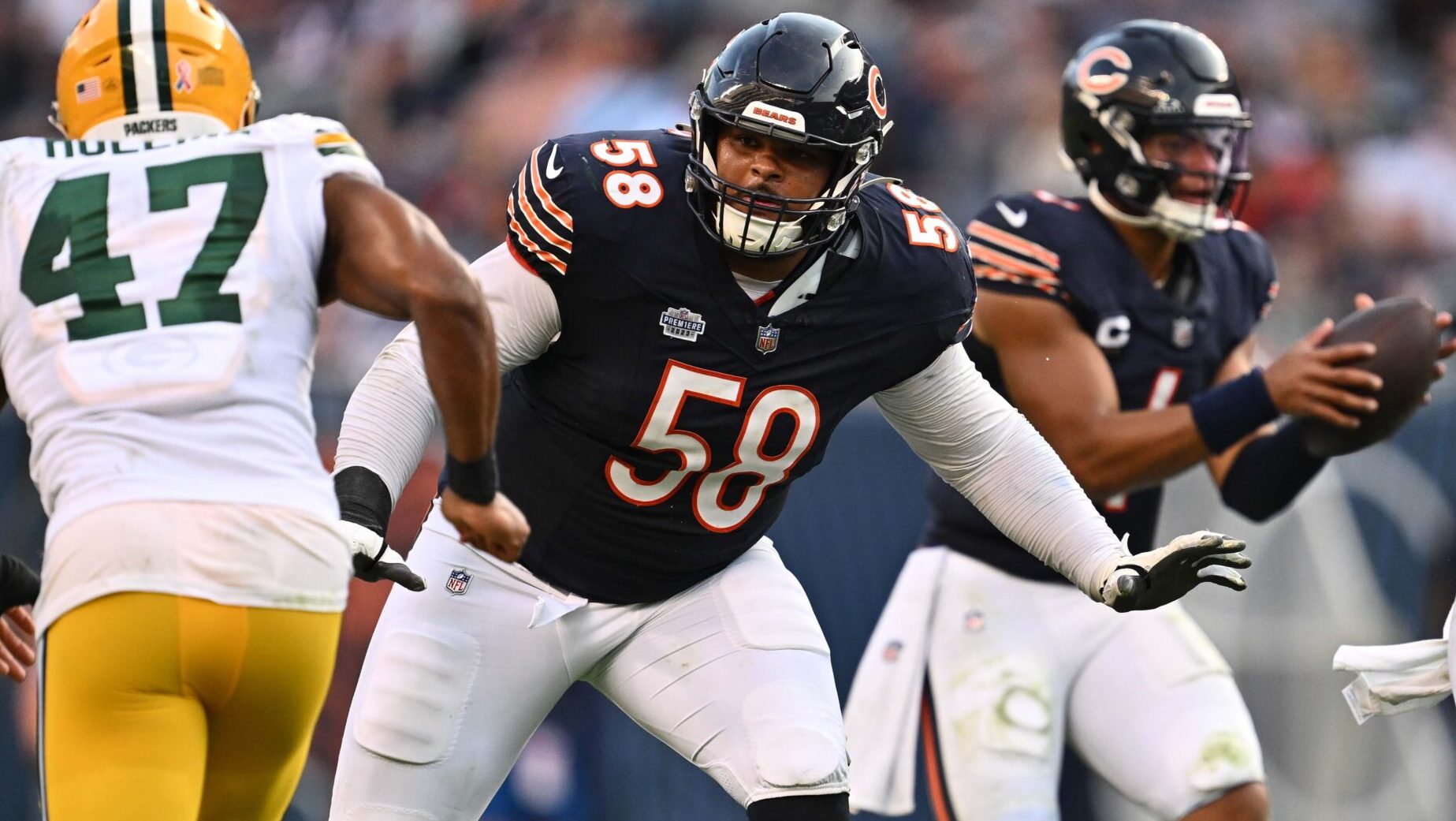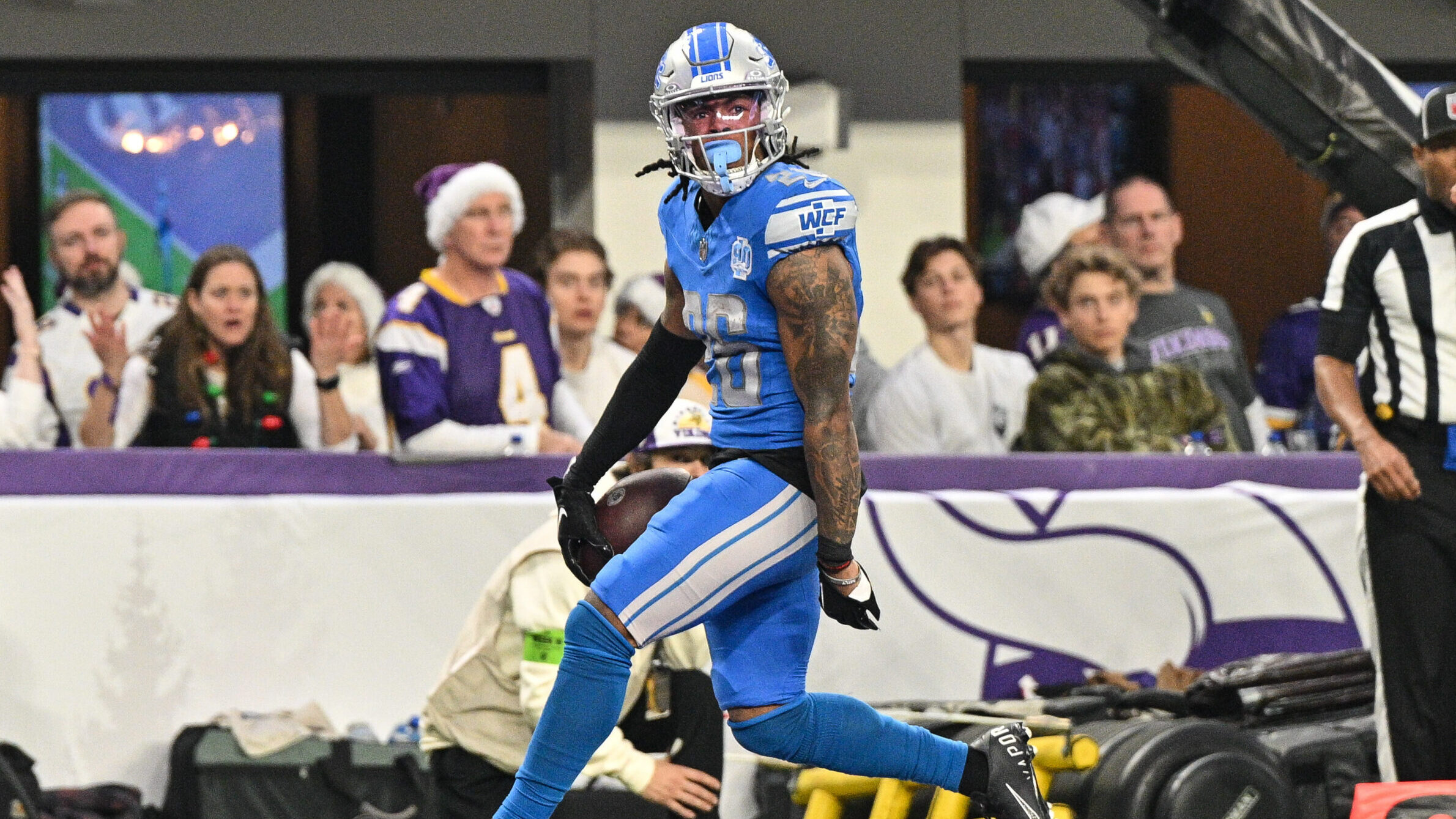Analysis
11/5/20
4 min min read
Saints' Alvin Kamara Is the New Standard for Elite Running Backs in the NFL


As we learned pretty early on in the 2020 NFL season, offense is the name of the game. But not just any offense. Through eight weeks, record-breaking quarterback play and rising stars at the wide receiver position have made the passing game all anyone can talk about. While passing in the NFL has been on an undeniably new level up to this point, this trend really shouldn’t be surprising to anyone. Over the years, the league has become more and more dependent on the success of a team’s passing attack. Carving this path for quarterbacks and wide receivers has, as one can imagine, left running backs somewhat in the dust.
That’s not to say solid running back play hasn’t been important, because it most definitely has. But teams have found that they don’t necessarily need anything more than a serviceable player at the running back position. If you look back at recent Super Bowl champions, most relied on a committee of backs, each possessing a different skill set. New England’s past three Super Bowl titles (in a five-year stretch) have all come with a different “lead” back. Jonas Gray was New England’s top rusher in their 2014 championship season. He was accompanied by versatile backs Shane Vereen, Stevan Ridley and James White and power backs LeGarrette Blount and Brandon Bolden. Denver’s 2015 championship came with a running back by the name of Ronnie Hillman as their leading rusher -- not exactly a household name. Super Bowl MVP awards reiterate how we have come to view the value of elite running backs -- over the last 22 Super Bowls, no running back has been named the MVP. The last time a running back was the MVP was Super Bowl XXXII, when Terrell Davis won it with the Denver Broncos.
That’s one reason why it’s not shocking that teams have been reluctant to pay the same big money to running backs that they do for elite pass rushers or wide receivers. In discussing the idea of paying top-level running backs with some former NFL general managers, most stressed erring on the side of caution. This year alone, we have seen high-paid elite backs like Christian McCaffrey and Saquon Barkley go down with serious (or season-ending) injuries. With a position that is so physical and demanding, it’s naive to think these types of injuries won’t be common. We’ve also seen backs like David Johnson and Todd Gurley leave their original teams before their extensions were completed. All of this uncertainty, paired with the current passing landscape in the NFL, has left little hope for elite running backs to cash in.
But just like with anything else in life, those who adapt to the times and find new ways to add value will find success no matter the current circumstances. Thus, pass-catching backs have become the new elite backs. They have made us push back on the “don’t pay running backs” claim. Perhaps the best example of this new breed of elite running back is New Orleans Saints star Alvin Kamara.
Kamara’s numbers speak to the level of production and impact he has had since entering the league. He won the Offensive Rookie of the Year award in 2017 and really emerged onto the scene in 2018, when he finished with 883 rushing yards on 194 carries, and added 14 rushing touchdowns. On top of that, Kamara tallied 709 yards receiving on 81 receptions and 4 touchdowns. Kamara finished the season second in the NFL in rushing touchdowns, total touchdowns, and rushing/receiving touchdowns.
Injuries slowed Kamara's production in 2019, but he remained on the field, fighting through the pain for 14 of the Saints’ 16 regular-season games. Kamara still recorded close to 800 yards rushing; and while his receptions (81) remained exactly the same as his totals from his first two seasons, he wasn’t able to rack up as much yardage. Since entering the league, Kamara has yet to finish lower than fifth in total receiving targets among all running backs.
Kamara currently sits 12th in the league in total targets and 15th in total yards, among all positions. His receiving yardage total this season is currently ahead of notable wide receivers like Davante Adams and Tyreek Hill. Unsurprisingly, Kamara leads all running backs in receiving EPA at 19.4, which is 22nd among all players regardless of position. His total EPA is third among all players with at least 5 carries and 1 receiving target.
There is absolutely no doubt the New Orleans offense runs through Alvin Kamara. He has been on the field for 70.7% of all offensive snaps this season. Kamara is truly a threat on every down, and that is as a result of the versatility he offers in the passing game. Through Week 8, Kamara leads all non-quarterbacks in percentage of total team yards with 37.6%. Much of this yardage production comes in the receiving game- Kamara has been averaging 7.85 receptions and 79.42 yards per game thus far in 2020. Coming off his performance in Week 8, Kamara is just the third back, joining Matt Forte and Hall of Famer LaDainian Tomlinson, to have at least 50 receptions in each of their first four seasons (Kamara already has 55 this season).
Kamara is a matchup nightmare for teams. Teams don’t simply prepare to stop him in the backfield -- much of their game plan involves ways to limit his ability to beat them once he catches the ball in space. His rare combination of speed and power makes him so lethal in Sean Peyton’s scheme that plays to his strengths. Put simply, Alvin Kamara is a game-changer. Regardless of the perceived value placed on certain positions, game-changers deserve to be paid. And Kamara is a game-changer.








